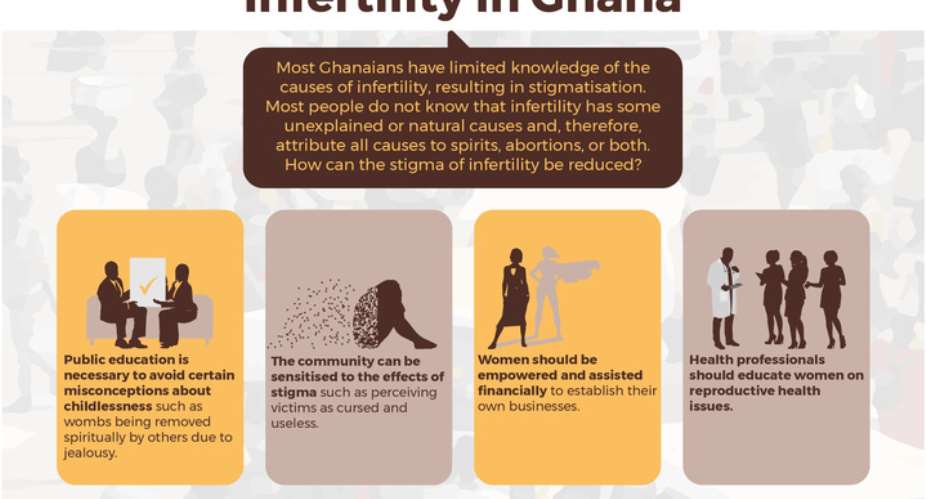Justice Dr. Ernest Owusu Dapaa, a Court of Appeal Judge, has called for an enabling legal framework to regulate the activities of In Vitro Fertilisation (IVF) and operations of fertility clinics and hospitals in the country.
He noted that IVF had become part of health (medical) practice, thus its practice must be under a legal framework.
“IVF provides a lot of golden opportunities for couples that are struggling for many months, many years to have children, but are unable to do so. There is nothing wrong with that.
“However, as we know, in every good thing, if it is left unregulated there is that risk of abuse and risk of scandals. We would like lawmakers to heed the calls to have dedicated legislation on surrogacy, especially in the area of contractual agreements and human fertilisation when it comes to assisted reproduction.
“We can have a contractual agreement on surrogacy and every human fertilisation,” he said.
Justice Dr. Dapaa was speaking at the opening of African Bar Association (ABA) Medical Law Committee Annual Conference, 2024 in Accra, Ghana.
The two-day conference is on the theme: “Healthcare System in Africa; Getting Stakeholders and Health Providers More Responsive under the law”.
Topics to be discussed include: “The radical child sexualization agenda of West on African Nations”,” Doctor Patient Relationship in Africa: Challenges and the Way forward,” “Determinant Challenges Associated with Citizenship by Birth in IVF Cases, the way forward,” and “Preservation of life and Stakeholders perceptions on Euthanasia and assisted Suicide in Africa”.
IVF is a medical procedure that assists with the conception of a child by combining an egg and sperm outside the body, followed by the implantation of the fertilized embryo into the uterus.
The sperm could be from the husband or from a donor. Likewise, eggs could come from the wife or a donor.
The Court of Appeal Judge said because those areas were not regulated, “we hear of scandals in the news of how people are exploited through surrogacy arrangement and how people have benefitted from a commissioned parent only to have a change of mind.”
“To avoid these, it is important that laws are in place. This is an area that we cannot do without regulations, let’s get the legal experts, ethicists, to brainstorm to look at the unique cultural values in the area of assisted production and adopt appropriate legal norms in assistant human fertilization.”
He noted that in the New Births and Death legislation, there were implications of surrogacy arrangement, but “we still need a law to cater for surrogacy and all other issues concerned”.
Speaking on the topic: “Determinant Challenges associated with Citizenship by birth in IVF Cases, the Way Out”, Justice Dr Dapaa noted that in recent years, the field of Assisted Reproductive Technology (ART) had undergone remarkable advancements, leading to profound legal and ethical implications in the context of Ghanaian Law.
According to the Court of Appeal Judge, it was important that Ghana drew valuable lessons from other jurisdictions and how their legal frameworks had been designed to encompass and embrace the new trend.
He said the complex nature of IVF demanded a delicate balance between technological progress and the protection of individual rights.
Justice Dapaa noted that although IVF had been around for the past 40 years there had been ethical implications and same could result in conflicts.
According to him, in Ghana, the intersection of IVF and citizenship was fraught with challenges.
The legal hurdles, he said, ranged from definition of parentage to the recognition of the child’s citizenship, creating a complex web that demanded careful consideration.
He said there was no specific law whether passed by Parliament or decided by the courts, which governed issues on parentage relative to IVF.
“It is our responsibility to advocate for laws that not only address complexities of modern reproductive technology, but also uphold the fundamental principles of justice equity and human rights.
“Let us remember that the progress of Science should not outpace the evolution of legal frameworks.”
Justice Dr Dapaa called on the participants to be collectively committed to crafting laws that stood the test of time and served the best interest of all citizens born through traditional means or through Assisted Reproductive Technology.
GNA





 A/R: Tontokrom residents demand prosecution of killers of Rahman Mohammed
A/R: Tontokrom residents demand prosecution of killers of Rahman Mohammed
 Ejisu by-election: Interdict Gallo and his lawyer - CPP chairperson to Council o...
Ejisu by-election: Interdict Gallo and his lawyer - CPP chairperson to Council o...
 Limited voter registration: We’ll extend deadline if necessary – EC
Limited voter registration: We’ll extend deadline if necessary – EC
 I'll establish common-user processing facilities at various mining districts — B...
I'll establish common-user processing facilities at various mining districts — B...
 My gov’t will establish minerals development bank if I become president – Bawumi...
My gov’t will establish minerals development bank if I become president – Bawumi...
 May 9: Cedi sells at GHS14.15 to $1, GHS13.55 on BoG interbank
May 9: Cedi sells at GHS14.15 to $1, GHS13.55 on BoG interbank
 A legacy of economic malaise, corruption, arrogance — Prof Gyampo 'criticizes' A...
A legacy of economic malaise, corruption, arrogance — Prof Gyampo 'criticizes' A...
 What are you hiding about the stinky SML/GRA deal? — Manasseh quizzes Akufo-Addo...
What are you hiding about the stinky SML/GRA deal? — Manasseh quizzes Akufo-Addo...
 Corruption: Until you hear Mahama, Bawumia talking about practical solutions don...
Corruption: Until you hear Mahama, Bawumia talking about practical solutions don...
 We need a paradigm shift in the management of our natural resources – Bawumia
We need a paradigm shift in the management of our natural resources – Bawumia
